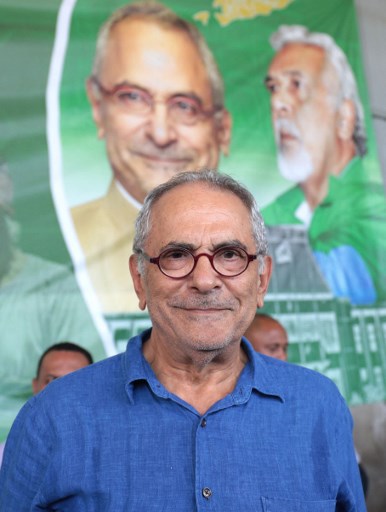
National representatives from the 10-member Association of Southeast Asian Nations (ASEAN) and member-to-be East Timor are meeting in the Indonesian capital, Jakarta, this week.
The four-day summit, which started on Tuesday, is also attended by United States Vice President Kamala Harris, Chinese Premier Li Qiang and other prominent politicians.
East Timor’s Prime Minister Xanana Gusmao has said he may reconsider joining ASEAN if the bloc does not renew efforts to end the conflict in Myanmar following the military coup in 2021.
Thailand’s outgoing military-led government broke ranks with the bloc, which had collectively decided to suspend Myanmar’s generals from top meetings, and embraced the neighbouring country’s regime with support from China.
Last month, Myanmar’s coup leaders expelled East Timor’s top diplomat in Yangon after the Timorese joined a long list of countries in meeting with Myanmar’s National Unity Government (NUG), set up by the now-removed elected lawmakers, most of whom are associated with jailed civilian leader Aung San Suu Kyi.
Al Jazeera spoke with East Timor’s President Jose Ramos-Horta on the developments, the future of his country in ASEAN and the situation in Myanmar.
Al Jazeera: In January this year, you said there were no obstacles to your country’s accession to ASEAN. What has changed since then?
Jose Ramos-Horta: There has been no change. We are on track to join ASEAN and working hard with our ASEAN and other partners to implement a roadmap. The preference for us is to join in 2025, which will give us two years to reach the milestones laid out in the roadmap adopted by ASEAN leaders.
Al Jazeera: We have been hearing about threats to pull back your ASEAN bid if the Myanmar crisis is not addressed adequately. Where are those threats coming from if you say things are on track?
Ramos-Horta: We cannot blame ASEAN’s failures in dissuading the military to go back to its barracks and to respect the democratic rights of the people of Myanmar, to explore democracy, to free prisoners and stop killing civilians, as we cannot blame the UN Security Council for the war in Ukraine and the inability of the UN to resolve the crisis there.
Our prime minister was expressing his frustration and ours, of ASEAN countries and the wider international community in regards to the failure of the military in Myanmar to live up to the pledges contained in the five-point consensus that the top model agreed with ASEAN leaders. The military in Myanmar seems not to realise the enormous harm they are doing to their own country, their own people and to the credibility of ASEAN.
Al Jazeera: So you’re saying that there are frustrations but you are not threatening to withdraw your ASEAN bid?
Ramos-Horta: Absolutely not. We are very grateful to ASEAN leaders. We want to join. This is in our national interest, goal and commitment. We will work with ASEAN partners to assist the bloc in addressing the problems of Myanmar, but from within ASEAN, not outside it.
Al Jazeera: You have said your involvement in the Myanmar issue has been out of personal interest, and you have a friendly relationship with Aung San Suu Kyi, who remains in detention. After the attacks on the Rohingya, she faced heavy criticism for not speaking out. Has that changed the way other countries engage with the crisis in Myanmar? Perhaps the West and others have taken a step back?
Ramos-Horta: It seems to me that those who criticise and demonise Aung San Suu Kyi did not understand that she had zero power over the military. She was neither the president nor the prime minister. She was a foreign affairs minister with zero power or control over the military. Instead of targeting the military for their crimes against the Rohingya, they were singling her out.
That was my criticism of those who, instead of focusing on the military which was responsible for launching the attacks on the Rohingya, were demonising Aung San Suu Kyi. I could not agree with that and I still don’t agree with that.
Al Jazeera: You’ve said ASEAN is facing challenges in getting the Myanmar military to implement the deal. There are issues due to the US-China rivalry and the war in Ukraine. Are you concerned that with all of these divisions and other structural issues, ASEAN is perhaps becoming less relevant?
Ramos-Horta: No, ASEAN will remain vital. It is an energetic area – 700 million people and $4 trillion economy and a very strategic space and waterways. The rivalry, which was always there, will continue. Going back to the Vietnam War and insurgencies of the 1960s, ASEAN leaders were able to navigate these storms and build ASEAN and bring prosperity and stability to the region. I am confident that they will eventually be able to stabilise the situation in Myanmar. The military in Myanmar is not winning this war. They control only 30 percent of the country. Twenty years ago, the fight was between the national armies. Today, it is between the people and the military, and the military will not win this war. I would only hope that Russia and North Korea stop supplying weapons to Myanmar.
This interview has been edited for clarity and length.







